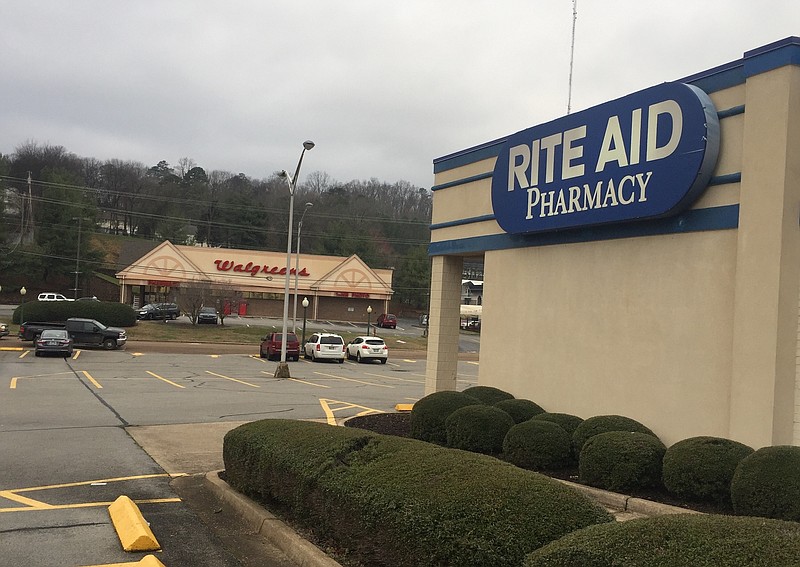The owner of Safeway and other grocery brands is buying the drugstore chain Rite Aid as retailers continue to plunge deeper into health care and adjust to swiftly changing shopping habits.
Albertsons Cos. executives said Tuesday their purchase of Rite Aid's more than 2,500 remaining stores will help the combined company become a "leader in food, health and wellness."
The combination will have 4,892 stores and more than 4,300 pharmacies with a stronger presence on both coasts of the U.S. market.
Last week, Rite Aid announced it had sold 1,114 stores and related assets to Walgreens, including its stores in Chattanooga, for $2.4 billion. The purchase by Walgreens of one of its drug store rivals gives Walgreens about as many U.S. stores as arch-rival CVS Health, which has about 9,600 locations.
Rite Aid operates 10 stores in Hamilton County, two stores in Cleveland, Tenn., and other outlets in Dunlap, Tenn., and Tunnel Hill, Ga. Walgreens operates stores across the street from Rite Aid outlets on Highway 153 and Dayton Boulevard, among other places. But so far Walgreens has kept the Rite Aid stores and brand operating in competition with its own drug stores.
Rite Aid in 2015 attempted to sell its 4,600 stores to Walgreens in a $17.5 billion deal. Regulators, though, whittled the deal down to a purchase of 1,932 stores for $4.37 billion.
Albertson's is buying the remaining Rite Aid stores to help broaden its customer appeal. Retailers have been pushing home deliveries and other customer-friendly services in the wake of expanded competition from Amazon. The online giant bought the grocer Whole Foods last year and plans to roll out a two-hour delivery service this year to customers who pay for its $99-a-year Prime membership.
Amazon's competitors also are bulking up health care services, which cannot be purchased online. Late last year, Rite Aid rival CVS Health Corp. said it would buy the health insurer Aetna for $69 billion. That deal could turn many of the chain's 9,800 stores into one-stop-shop locations for an array of health care needs like blood work and eye or hearing care in addition to their traditional role of filling prescriptions.
In Rite Aid, Albertsons Companies is buying a chain that has already remodeled more than half of its stores into a format that includes expanded pharmacy services and more health products. Like its drugstore chain competition, Rite Aid also operates walk-in clinics that can deal with cases of the flu, sinus infections and other relatively minor complaints.
It also has a pharmacy benefit management business that runs prescription drug coverage.
Albertsons said it will continue to run Rite Aid stand-alone stores, and most of the grocery operator's pharmacies will be rebranded as Rite Aid. Albertsons also runs Jewel-Osco, Shaw's, Vons and Acme stores.
The deal will create a company with "a large scale and diversified revenue base necessary to compete in today's highly competitive food and drug retail environment," Moody's Vice President Mickey Chadha said in a statement.
Rite Aid has struggled with high debt levels and tough competition from larger rivals, as narrowing drugstore networks have pushed customers away from its stores.
Rite Aid Chairman and CEO John Standley will lead the combined company as CEO, while Albertsons leader Bob Miller will serve as chairman. The companies say they will keep headquarters in both Boise and Camp Hill, Pennsylvania, which is where Rite Aid is based.
